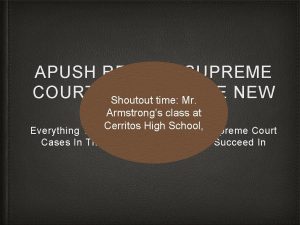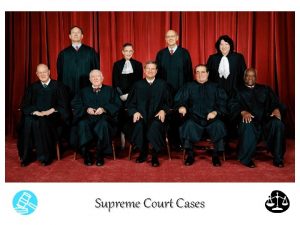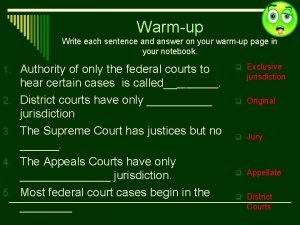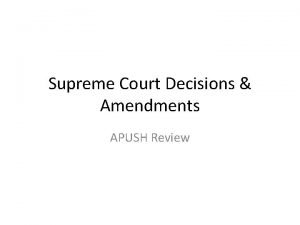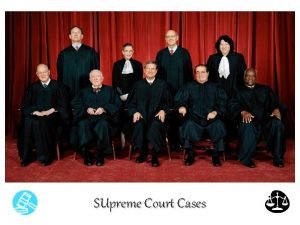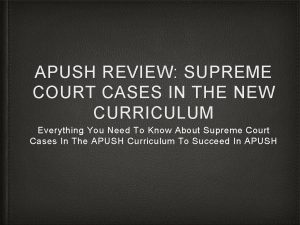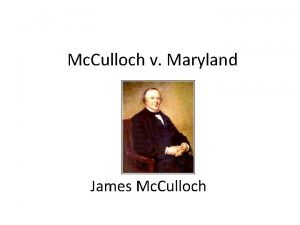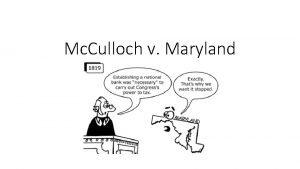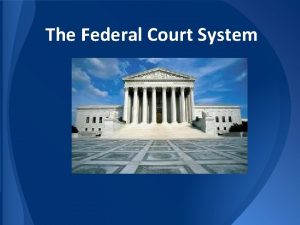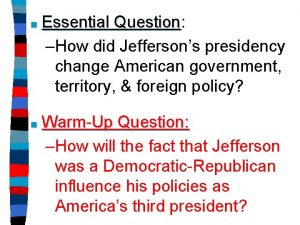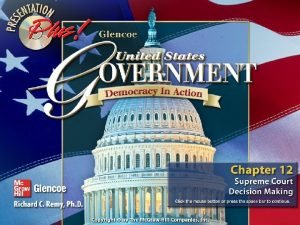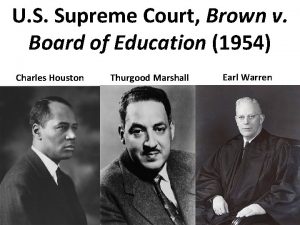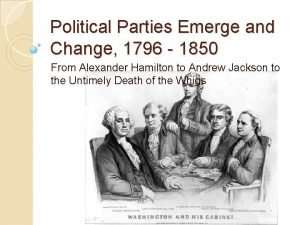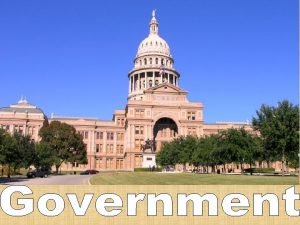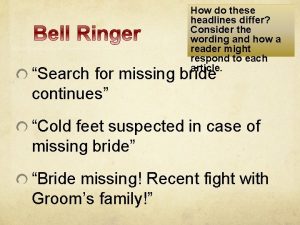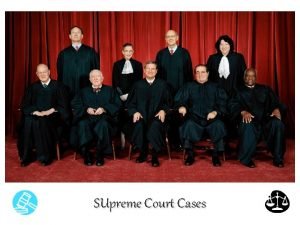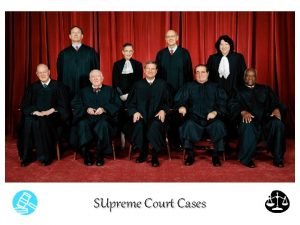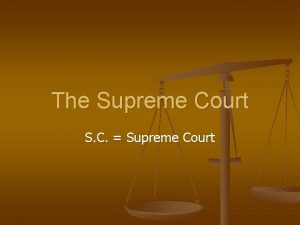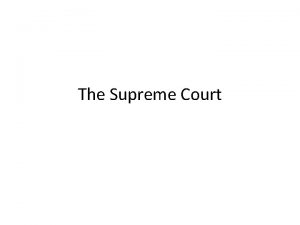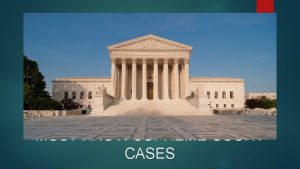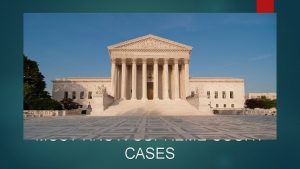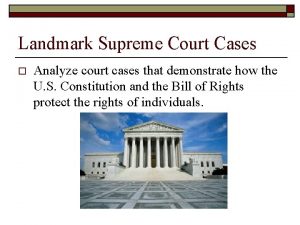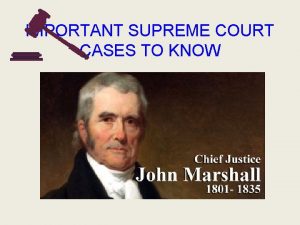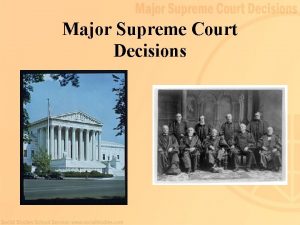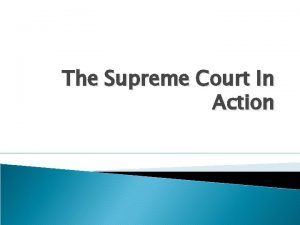III Important Supreme Court Cases A Mc Culloch
















- Slides: 16

III. Important Supreme Court Cases

A. Mc. Culloch V Maryland (1819) • First major battle over federalism – The power of the national government • 10 th Amendment – Framers said that if its not in the Constitution it is left to the states

• 1791 – Congress created a national bank with a 20 year charter • 1816 – A new charter was granted to the Bank of the United States (B. U. S. )

• Many Americans were against the B. U. S. • Was able to control the entire economy in the United States • B. U. S. overextended their credit which led to a widespread depression

B. Stop the B. U. S. • James Mc. Culloch refused to pay a Maryland state tax on the bank • B. U. S. should not exist because it was not intended by the framers

C. Marshall’s Decision • Admits not written in Constitution • Says a written constitutions is short and ambiguous • Framers left an important tool “Necessary and Proper Clause” • Gives federal government implied powers

• Congress may do whatever is appropriate to carry out their written powers • “Let the end be legitimate and the means appropriate”

D. Reynolds V. United States (1879) • George Reynolds, member of the Mormon Church, was charged with bigamy • Bigamy – Having more than one spouse

Mormon Temple

• Mormon Church allowed males to have more than one wife • 1 st Amendment – Guarantees the free exercise of religion

Question • Should the government be able to regulate how many wives you have?

E. Court’s Ruling • Court unanimously ruled that it was illegal to have more than one wife • Stated that if they allowed polygamy they would have to allow ritual killing of another religion

• People have freedom over religious beliefs • Court can regulate religious actions that violate social order • Court can also protect marriage because majority of people consider it “a sacred obligation”

F. Establishment Clause • 1) No state church • Prohibits the government from forming, funding, or operating a church • 2) No state endorsement • Government can give no preference for one religion over another or religion over nonreligion

G. Engal v. Vitale (1962) • Before 1962, 67% of public schools started the day with a prayer or readings from the Bible • Most states had an official state prayer said before the school day • Five parents complained about a New York prayer • Ruled this practice unconstitutional

H. Lemon v Kurtzman (1971) • Lemon Test • 1) Is there a legitimate secular purpose? • 2) Is the primary effect to advance religion? • 3) Is state money going to support a completely religious message?
 Schechter vs us apush
Schechter vs us apush Cohens vs virginia apush
Cohens vs virginia apush How cases reach the supreme court worksheet answers
How cases reach the supreme court worksheet answers Apush amendments review
Apush amendments review Insular cases apush
Insular cases apush Is there a basketball court above the supreme court
Is there a basketball court above the supreme court Court cases apush
Court cases apush Mc culloch v maryland
Mc culloch v maryland Mc culloch v maryland
Mc culloch v maryland Us circuit court map
Us circuit court map John marshall supreme court
John marshall supreme court Supreme court does
Supreme court does Supreme court
Supreme court The supreme court change
The supreme court change Have supreme court
Have supreme court What do these headlines say about how the supreme court
What do these headlines say about how the supreme court Which precedent was established by marbury v. madison
Which precedent was established by marbury v. madison
